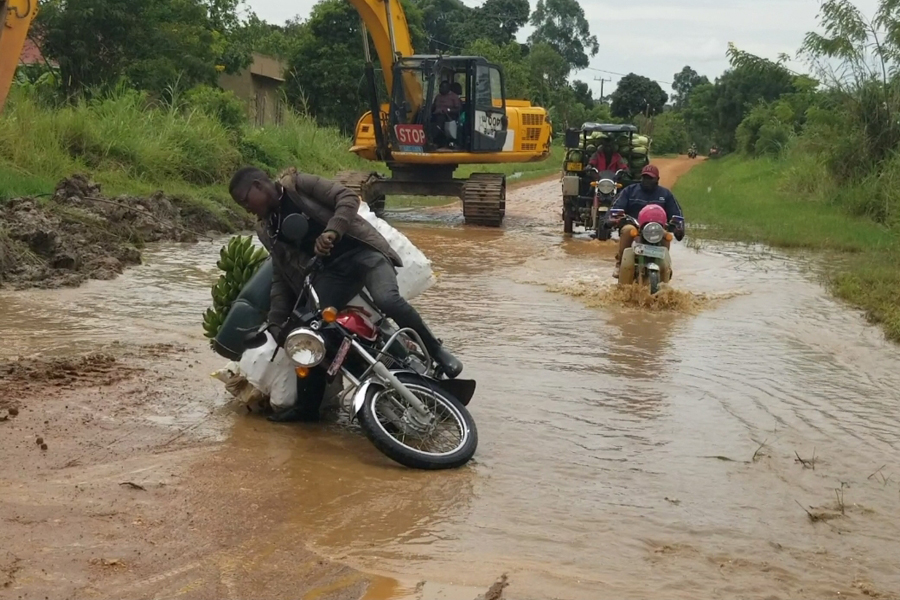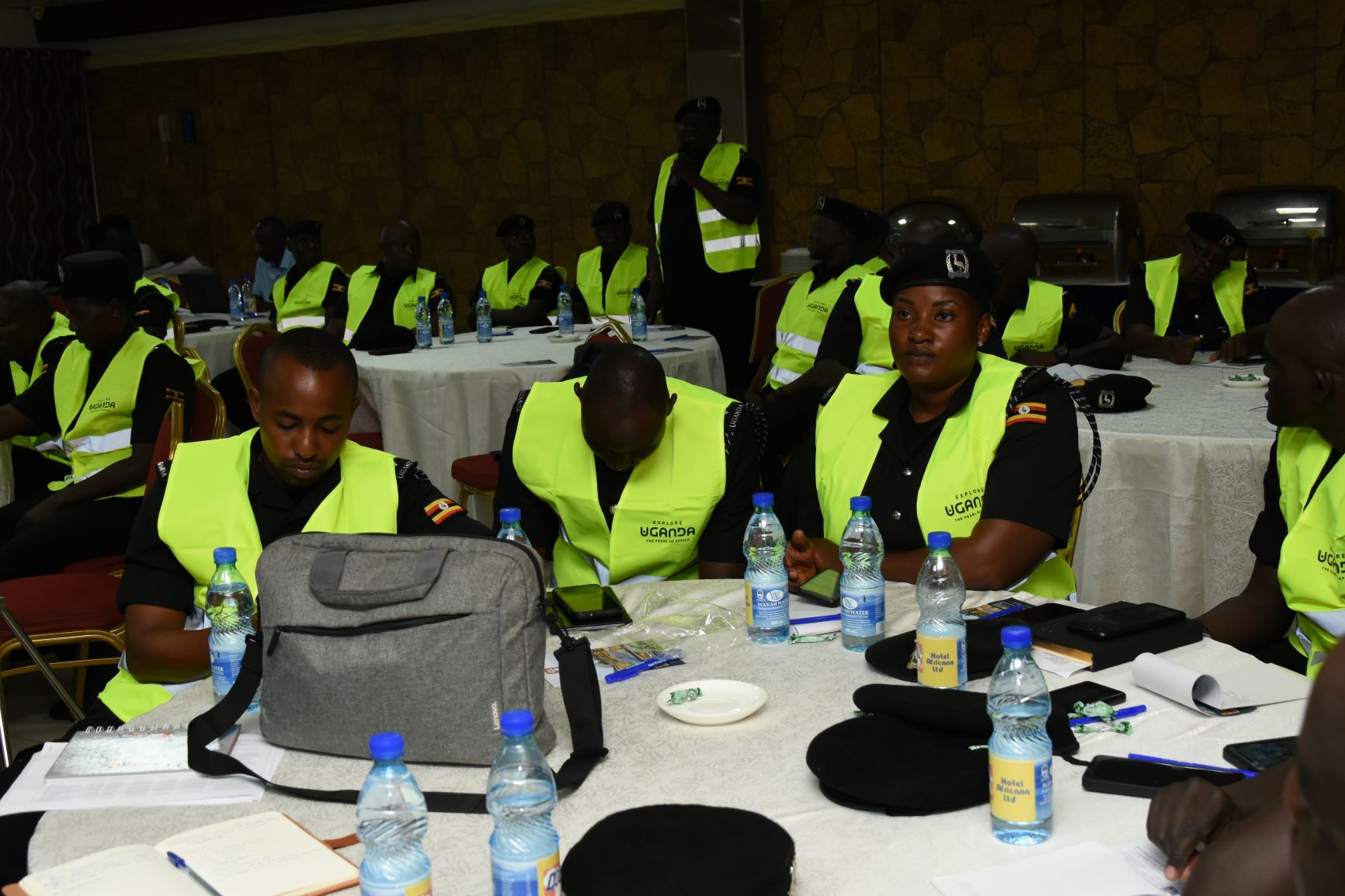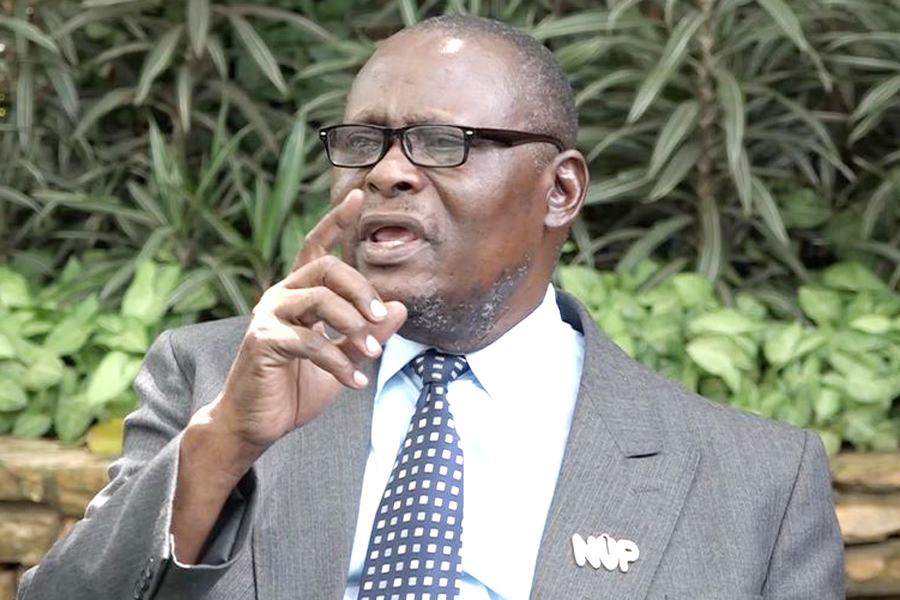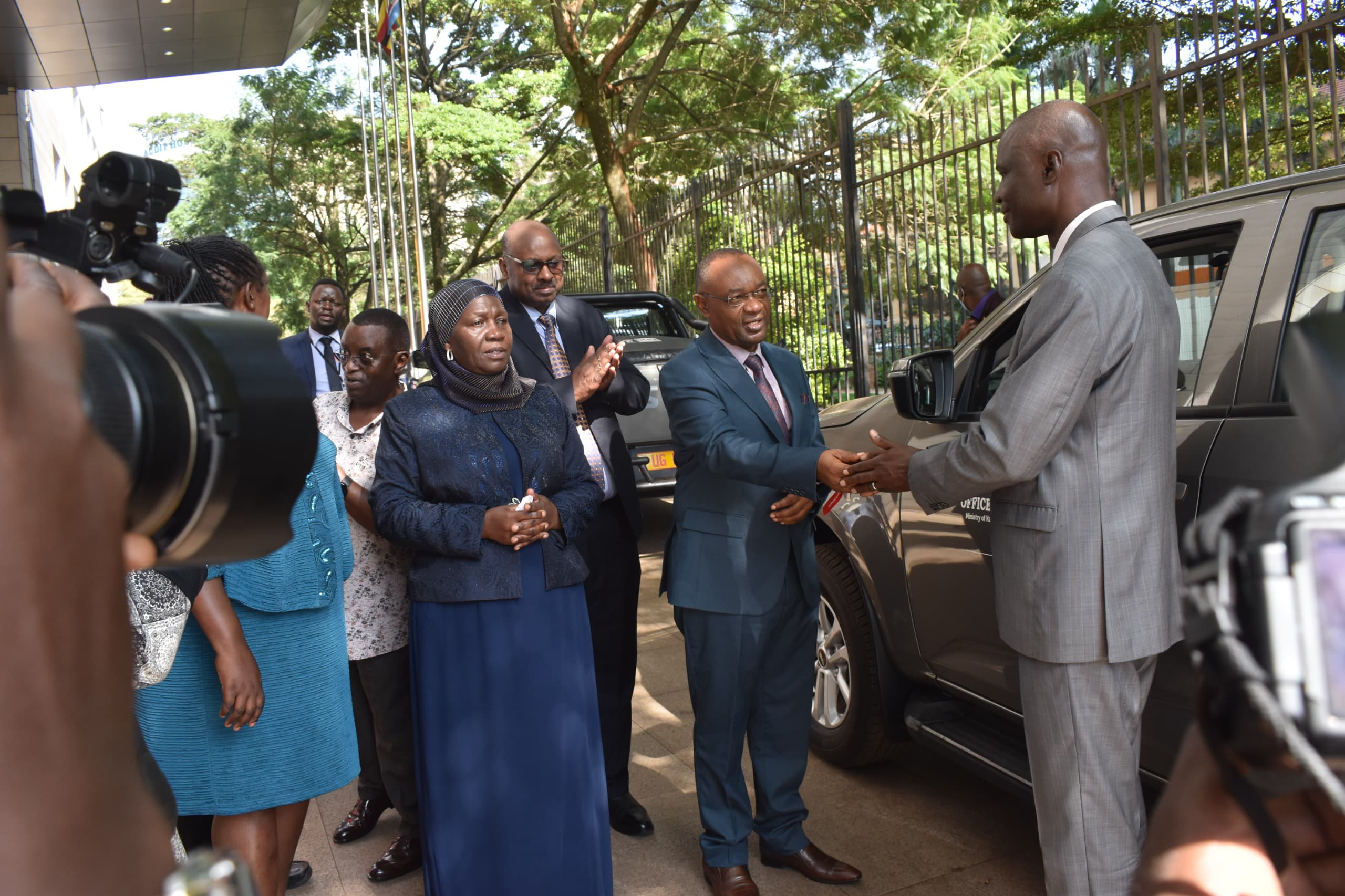Bad roads push rural Ugandans further adrift of opportunities

In recent years, the condition of roads in Uganda's rural areas has become a growing concern for residents and local authorities.
The lack of proper infrastructure and maintenance has led to numerous challenges for communities, impacting their access to essential services and economic opportunities.
The poor state of rural roads has hindered the transportation of goods and services, affecting the livelihoods of farmers and businesses.
Many rural communities struggle with limited access to healthcare facilities, schools, and markets due to the impassable roads, which has contributed to isolation and limited economic growth.
In Kyotera District, echoes of cries of over poor roads has been bouncing into space with eerie effect but no one is answering.
“Pregnant women are giving birth on the way to the hospitals due to the delays which were caused by the poor road network in the area," the locals say.
In Bukomansimbi, farmers also expose their difficulties in transporting their goods and services to nearby markets.
“Live along the tarmacked main road Villa-Sembabule-Gomba road, other roads that branches off are all in poor state they we are the roads to our gardens and on this, it is very difficult for us in transportation of our produce because vehicles fail to move due to potholes and slippery terrain in the rainy season," Yasin Wanimba, a local farmer in Bukomansimbi, said.
Furthermore, the condition of the roads has also posed safety risks for travellers, particularly during the rainy season when many roads become muddy and difficult to navigate.
This has resulted in increased accidents and delays in emergency response services.
Local authorities and community leaders have been advocating for the improvement of rural roads, emphasising the need for investment in infrastructure and regular maintenance.
They argue that better roads would not only enhance connectivity and access to essential services but also stimulate economic development and improve the overall quality of life for rural residents.
The government has acknowledged the importance of addressing the state of rural roads and has committed to implementing initiatives to improve infrastructure in these areas.
However, there is a need for sustained efforts and investment to ensure that tangible improvements are made.
As the rural population continues to grow and rely on these roads for their daily activities, it is imperative for stakeholders to work together to prioritize the development and maintenance of rural road networks.
By doing so, Uganda can unlock the potential of its rural areas and create opportunities for sustainable growth and development.
The state of roads in rural areas is a critical issue that requires attention and action.
With concerted efforts and investment, the country can pave the way for improved connectivity, economic prosperity, and a better quality of life for its rural population.
The poor state of roads in rural Uganda presents several challenges for the local communities:
- Limited Access to Essential Services: Poor roads hinder access to healthcare facilities, schools, and markets, making it difficult for rural residents to obtain essential services and resources.
- Economic Impacts: Farmers and businesses face challenges in transporting goods and services to markets due to the poor road conditions, impacting their livelihoods and economic opportunities.
- Safety Risks: Impassable and poorly maintained roads pose safety risks for travellers, leading to increased accidents and delays in emergency response services, particularly during the rainy season.
- Isolation and Limited Connectivity: Inadequate road infrastructure contributes to the isolation of rural communities, limiting their connectivity to urban centres and other areas, which hinders social and economic development.
- Hindered Agricultural Productivity: Poor road conditions affect the transportation of agricultural produce, leading to post-harvest losses and reduced agricultural productivity.
- Limited Tourism Potential: Inaccessible rural areas due to poor roads limit the potential for tourism development, impacting local economies and opportunities for cultural exchange and development.
But the question is, with all these challenges, how will the government sustain the household income and boost the economic growth of Ugandans more especially the low earners?
Addressing these challenges requires concerted efforts to improve rural road infrastructure, including investment in construction, maintenance, and sustainable development of road networks in Uganda's rural areas.













